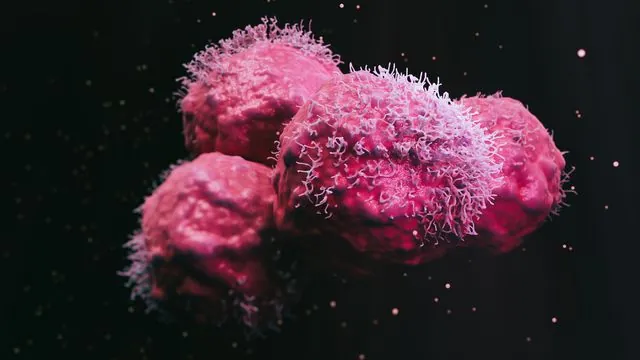
Breakthrough Discovery: Protein Unmasked That Helps Cancer Cells Outsmart CAR T-Cell Therapy
2024-12-18
Author: Li
Breakthrough Discovery: Protein Unmasked That Helps Cancer Cells Outsmart CAR T-Cell Therapy
In a groundbreaking study at City of Hope®, a leading cancer research and treatment organization in the United States, scientists have identified a protein that enables cancer cells to evade CAR T-cell therapy, a revolutionary treatment designed to harness the immune system to target and eliminate tumor cells. The advanced center, recognized among the top 5 cancer institutions in the nation by U.S. News & World Report, is making strides toward more effective and personalized cancer therapies.
CAR T-cell therapy has shown remarkable effectiveness in treating specific blood cancers, such as leukemia and lymphoma. However, cancer cells have developed cunning tactics to escape the immune system's attacks. Published in the peer-reviewed journal Cell, this recent study holds the potential to enhance patient survival rates through personalized treatment strategies.
Researchers have pinpointed a protein known as YTHDF2 as a critical player in the progression of blood cancers. In response, the City of Hope team has engineered a novel medicinal compound, CCI-38, which specifically targets and suppresses YTHDF2. This innovative approach has demonstrated a reduction in the proliferation of aggressive blood cancer cells, thereby increasing the potential for successful treatment outcomes.
Dr. Jianjun Chen, the director of the Center for RNA Biology and Therapeutics and a key author of the study, emphasized, “We believe that using CCI-38 to target YTHDF2 will significantly enhance the effectiveness of CAR T-cell therapy on blood cancer cells.” He highlighted one of the primary challenges in treating blood cancers—‘antigen escape,’ where cancer cells downregulate or entirely lose the CD19 protein, a crucial target for CAR T therapies, in 28-68% of cases, making these treatments less effective.
YTHDF2 plays a dual role in aiding cancer cells’ survival. It accelerates the expression of genes that provide a stable energy source for these cells, enabling them to grow and disseminate rapidly. Furthermore, the protein diminishes the presence of antigen biomarkers, making it harder for the immune system to recognize and engage cancer cells. Recent studies indicate that an overabundance of YTHDF2 can catalyze the transformation of normal blood cells into malignant ones.
Dr. Xiaolan Deng, a co-author of the study, noted, “Reducing the need for follow-up treatments could lead to better long-term survival and reduce relapse rates for our patients, resulting in lower side effects and medical costs.”
City of Hope's esteemed CAR T-cell therapy program has treated over 1,600 patients since its inception in the late 1990s, making it one of the largest and most comprehensive programs globally. The organization continues to be at the forefront of CAR T-cell clinical research, including promising studies into treating other cancers, such as glioblastoma.
Dr. Zhen-Hua Chen, a staff scientist and first author of the study, stated, "Unraveling the biology underlying YTHDF2's function will enable us to devise innovative strategies to prevent tumor cells from dodging immune detection.” This research is pivotal not only for patients who do not respond to initial treatments but also for those who face relapses after treatment with T-cell-based immunotherapies.
As City of Hope files for a patent that covers crucial aspects of this groundbreaking work, the next steps will involve enhancing the safety and efficacy of CCI-38, developing novel methods to eliminate YTHDF2 from cancer cells, and launching clinical trials. This breakthrough could pave the way for more effective treatments against various cancers and severe autoimmune disorders, potentially changing the landscape of cancer care as we know it.
Stay tuned as the City of Hope team pushes the boundaries of medical science to give hope to cancer patients around the world!

 Brasil (PT)
Brasil (PT)
 Canada (EN)
Canada (EN)
 Chile (ES)
Chile (ES)
 España (ES)
España (ES)
 France (FR)
France (FR)
 Hong Kong (EN)
Hong Kong (EN)
 Italia (IT)
Italia (IT)
 日本 (JA)
日本 (JA)
 Magyarország (HU)
Magyarország (HU)
 Norge (NO)
Norge (NO)
 Polska (PL)
Polska (PL)
 Schweiz (DE)
Schweiz (DE)
 Singapore (EN)
Singapore (EN)
 Sverige (SV)
Sverige (SV)
 Suomi (FI)
Suomi (FI)
 Türkiye (TR)
Türkiye (TR)